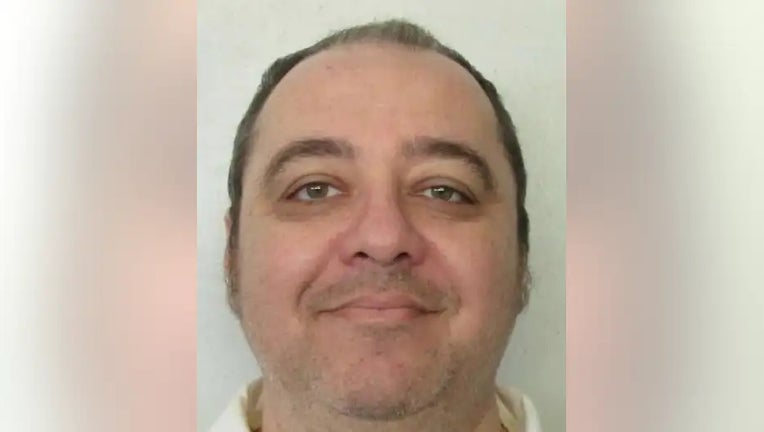Alabama hitman set for execution using nitrogen gas Thursday sparks debate: Here’s what to know

Kenneth Eugene Smith (Alabama Department of Corrections)
An inmate will be executed in Alabama on Thursday using nitrogen gas, a never before used method by the state that some critics believe is inhumane.
Kenneth Eugene Smith, 58, is scheduled to inhale the lethal gas after being convicted of capital murder for his role in a 1988 murder-for-hire plot that killed Elizabeth Sennett, so her husband could collect insurance money.
Smith and John Forrest Parker killed the woman for $1,000 each. Sennett's husband killed himself a week after the murder. Parker was executed by lethal injection in 2010.
Execution by nitrogen hypoxia would cause death by forcing a person to breathe pure nitrogen, which takes away oxygen needed to maintain bodily functions.
RELATED: Alabama to execute man using nitrogen gas, a first in the US
The gas' effect on humans is only recorded in medical journals about accidental exposure that has killed industrial workers or in suicide attempts, leading to criticisms that Smith is being used as a lab rat, FOX News reported.
In a Jan. 3 statement from the United Nations, the agency said the "untested method of execution which may subject him to cruel, inhuman or degrading treatment or even torture." According to FOX News, experts argued that there's no scientific evidence to prove Smith won't experience suffering and urged U.S. officials to halt the execution, pending review of the protocol.
Smith was scheduled for execution by lethal injection in 2022, but it was called off at the last minute because authorities were unable to connect an IV line.
Appeals court judges rejected Smith's argument Wednesday that it would be unconstitutional to make another attempt to execute him after the failed lethal injection.
On Thursday, Smith's attorneys asked the U.S. Supreme Court to halt the execution to review claims that the new execution method violates the constitutional ban on cruel and unusual punishment and deserves more legal scrutiny before it's used on a person, the Associated Press reported.
FOX News and the Associated Press contributed to this report. This story was reported from Washington, D.C.

